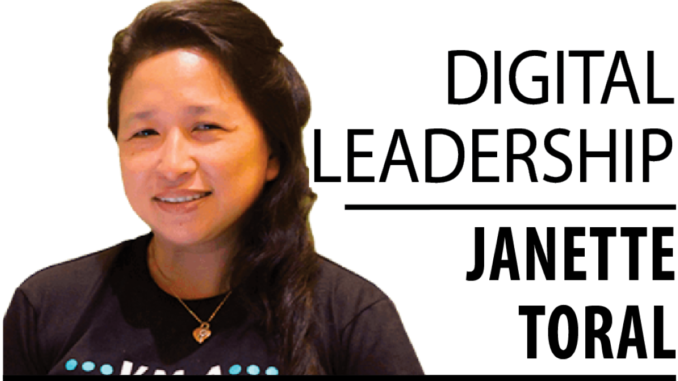
AS artificial intelligence (AI) becomes a cornerstone in modern marketing, brands are discovering its power to deliver personalized experiences and streamline operations. My recent talk at Adamson University, titled “Smart Marketing: Leveraging AI for Personalization and Efficiency,” discussed how AI-driven tools enable businesses to meet customers’ unique needs in real-time.
Personalization, a key element of effective marketing, has evolved with AI’s ability to process vast amounts of data quickly. AI algorithms analyze customer behaviors, preferences and purchase history, creating individualized marketing content that resonates with each consumer. In practice, this allows brands to engage with their customers on a personal level, offering tailored product recommendations, personalized emails and unique content experiences. For instance, companies like Amazon and Netflix use AI to predict what customers might want next based on their past activities. This kind of personalization not only improves customer satisfaction but also boosts sales.
Another example is Spotify’s DJ AI, which gives a customized playlist based on what you listened to before and what you will likely be interested in. If there’s a song you don’t particularly like, you can skip it further and make the AI aware of your music preferences.
Efficiency is another critical advantage AI offers. Traditionally, marketers would spend hours manually segmenting audiences, creating targeted campaigns, and monitoring customer interactions. AI simplifies and accelerates these processes by automating tasks, such as email marketing, chatbots and social media management. AI tools optimize campaigns in real-time, saving both time and resources. Brands can now manage complex campaigns with fewer human resources, allowing them to focus more on strategy and creativity.
One of the major challenges, however, is ensuring that AI-driven personalization remains ethical and respects customer privacy. As businesses rely more on customer data to create personalized experiences, they must be transparent about how data is collected and used. Regulations like GDPR in Europe and the Philippine Data Privacy Act impose guidelines to protect consumers, ensuring businesses operate responsibly. In my upcoming talk, I will explore how AI can strike a balance between innovation and responsibility, ensuring that brands can personalize without crossing ethical boundaries.
Moreover, AI is not only about personalization but also about achieving marketing efficiency. For example, AI chatbots can provide immediate customer service, handling simple queries and freeing up human agents for more complex tasks. Automated email systems powered by AI can send targeted offers at optimal times, boosting engagement rates. These tools allow marketers to automate repetitive processes, streamline operations, and improve overall productivity.
My talk featured a hands-on demonstration using the free version of ChatGPT, allowing participants to experience AI personalization firsthand. Through this, participants will understand how quickly AI can create personalized marketing messages tailored to individual customer data. This demonstration will reinforce how AI is a tool that not only enhances customer experience but also significantly reduces the time marketers spend on routine tasks.
To illustrate how AI personalization works, imagine a scenario where an online clothing store is preparing a personalized email campaign. Using AI, the company can analyze each customer’s purchase history, browsing behavior and preferences. For example, if a customer recently bought party clothes, the AI can automatically generate personalized email content that recommends matching accessories, like scarves or jewelry and offers exclusive discounts. This level of personalization boosts engagement by ensuring that each customer receives relevant offers based on their interests.
In a practical demonstration, participants could use AI prompts to simulate this process. For instance, a marketer could input the prompt: “Create an email for a customer who recently purchased a yoga mat, recommending complementary fitness products like water bottles and workout clothes.” The AI would generate a tailored message, allowing the marketer to quickly and efficiently craft personalized content. By leveraging these capabilities, companies can enhance their customer relationships, ensuring that marketing efforts resonate on a personal level without the manual effort that would traditionally be required.
AI’s role in marketing is not just a trend — it’s the future. As businesses become more data-driven, marketers need to harness AI’s potential to remain competitive. From personalization to automation, AI can be the difference between a brand that thrives and one that struggles to keep pace in today’s rapidly evolving market.
My reflection on AI-driven personalization and efficiency emphasizes how this technology transforms marketing processes. It offers a way for brands to connect with their customers on a more meaningful level while improving operational efficiency. AI allows businesses to act smarter, more efficiently, and in ways that would be impossible to achieve manually. I look forward to sharing these insights and more at Adamson University.
AI also helps professionals get things done in a shorter period and at greater depth. Students will need to be proficient in using AI and use it as a tool for competitive posturing in the job market.


Be the first to comment